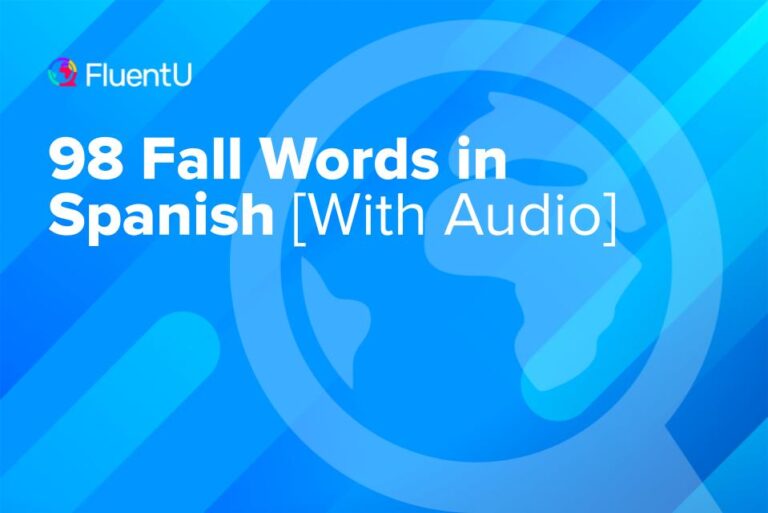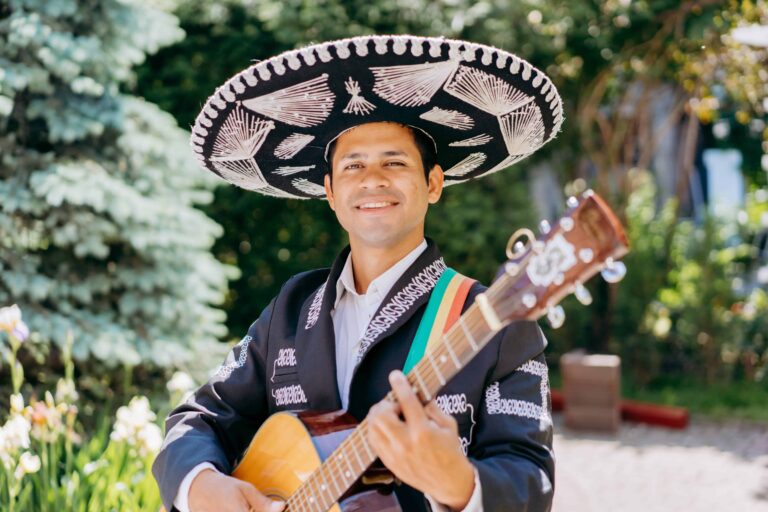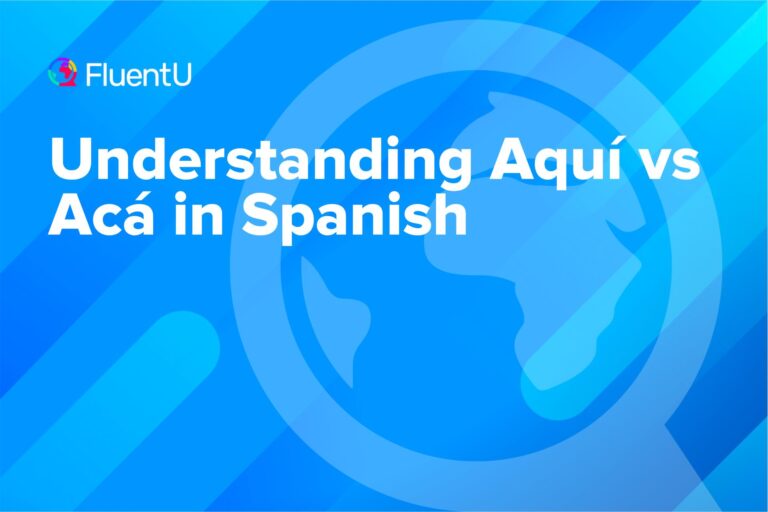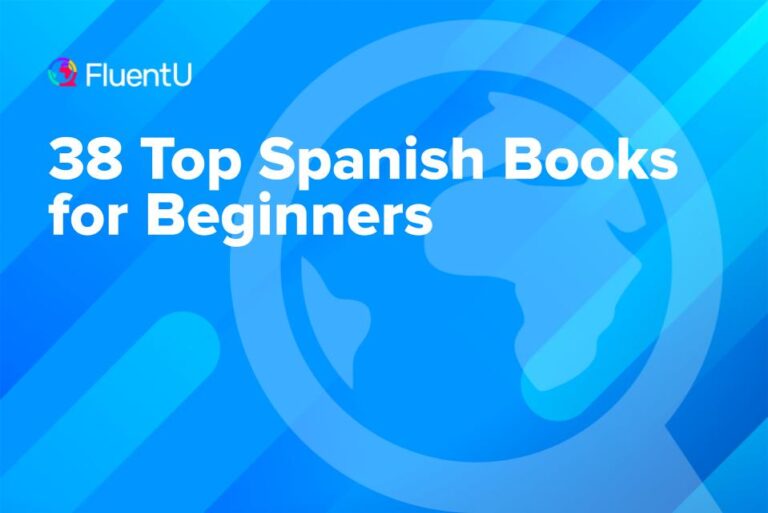60+ Onomatopoeia in Spanish for Sound Effects and More
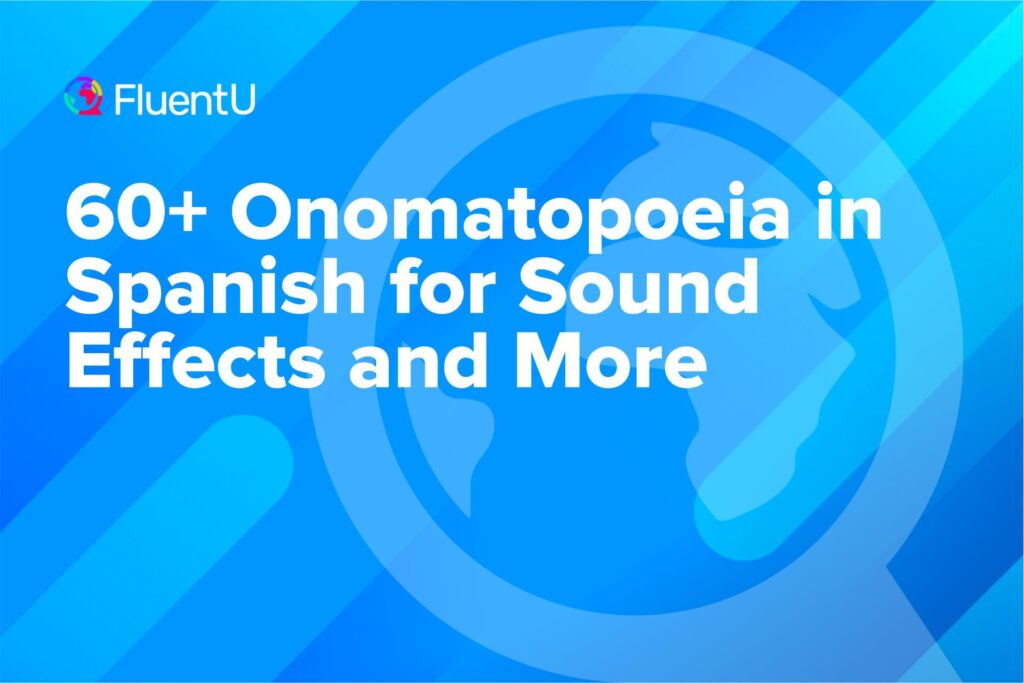
Onomatopoeia—or, onomatopeya in Spanish—are words associated with sounds. Take animal noises as an example: The word “buzz” represents the noise a bee makes.
Learning onomatopoeia in Spanish might not seem important at first, but knowing these little words will help you better understand Spanish media—like TV shows, movies, songs and comic books—and change up your study routine.
Download: This blog post is available as a convenient and portable PDF that you can take anywhere. Click here to get a copy. (Download)
Spanish Onomatopoeia for People
These onomatopoeia represent sounds made by people, such as when we sleep, chew, yawn, etc.
| Spanish | Meaning | Example |
|---|---|---|
| Plas | The sound of applause or hand clapping | La audiencia aplaudió al final del musical. ¡Plas, plas, plas! (The audience applauded at the end of the musical. Clap, clap, clap!) |
| Zzz | The sound of a person sleeping | El perro hace “zzz” porque está durmiendo. (The dog goes “zzz” because he is sleeping.) |
| Rrrrrrr | The sound of a person snoring | Mi padre ronca como un oso, ¡rrrrrrr! (My father snores like a bear, huugh!) |
| Toc toc or tras tras | The sound of knocking on a door | "Toc, toc, toc". Mi vecino tocaba la puerta. (Knock, knock, knock. My neighbor knocked on the door.) |
| Ñam, ñam, ñam | The sound of eating | Cuando ella come la comida italiana, dice: “Ñam, ñam, ñam.” (When she eats Italian food, she says, “Num, num, num.”) |
| Buaaa | The sound of yawning | “Buaaa”, ella bostezó por la mañana. (“Aaah,” she yawned in the morning.) |
| Hip | The sound of hiccuping | "Hip, hip, hip", hace el elefante cuando bebe el jugo. (“Hiccup, hiccup, hiccup,” the elephant goes when it drinks the juice.) |
| Cataplum , catapum , cataplún or cataplam | The general sound of hitting, bumping or colliding with an object | ¡Cataplún!, el coche chocó con el camión. (Crash! The car collided with the truck.) |
| Ejem, ejem | The sound of clearing one's throat | “Ejem, ejem”, el profesor carraspeó. (“Ahem, ahem,” the teacher cleared his throat.) |
| Mua , muac , muak or chuic | The sound of kissing | Te quiero mucho, ¡mua! (I love you a lot, muak!) |
| Ja, ja, ja or jejeje | The sound of laughter | ¡Ja, ja, ja!, ¡eres muy chistoso! (Ha ha ha! You’re very funny!) |
| Achís | The sound sneezing | ¡Achís! ¡Me resfrié y no puedo parar de estornudar! (Achoo! I got a cold and I can't stop sneezing!) |
| Glup | The sound of swallowing | ¡Glup! Me comí un trozo de pastel demasiado grande de un solo bocado. (Gulp! I ate too big a piece of cake in one bite.) |
| Uf | The sound made at awful-smelling things | ¡Uf! ¡El queso limburger huele horrible! (Yuck! Limburger cheese smells horrible!) |
Spanish Onomatopoeia for Sound Effects
Sound effects are the sounds produced after something happens.
Think knock knock when someone taps on a door, ring ring when someone calls you, or splat splat when it rains.
| Spanish | Meaning | Example |
|---|---|---|
| Chof or Plas | The sound of splashing | ¡La chica salta en la piscina con un "plas"! (The girl jumps into the pool with a splash!) |
| Paf | The sound of a blow or slap | La mujer lo abofeteó, ¡"paf"! (The woman hit him in the face, slap!) |
| Cataplum or Cataplún | The sound of an explosion, hit, or crash, especially when it's loud | ¡"Cataplum"! Los fuegos artificiales explotaron. (Boom! The fireworks exploded.) |
| Zas | The sound of anything being struck, such as smacking someone’s face or cracking a whip | ¡"Zas"! El domador de leones restalló el látigo contra la pared. (Crack! The lion tamer cracked his whip against the wall.) |
| Tan, tan, tan | The sound a bell makes, striking an anvil, hitting a hammer, etc. | ¡Escuche! El herrero bate su yunque con el martillo. ¡"Tan, tan, tan"! (Listen! The blacksmith hits his anvil with the hammer. Clang, clang, clang!) |
| Uuuuh, uuuuh | The sound of a police car, firetruck or ambulance | ¿Puedes oír las sirenas del coche de bomberos? ¡"Uuuuh uuuuh"!, ¡"uuuuh uuuuh"! (Can you hear the firetruck’s sirens? Wee woo! Wee woo!) |
| Plic, plic | The sound of soft rain | Plic, plic. La lluvia pega sobre el techo. (Plop. Plop. The rain hits the roof.) |
| Tras | The sound of objects breaking | ¡"Tras"! El jarrón Ming se rompió en el museo. (Crack! The Ming vase broke in the museum.) |
| Ñeec, ñeec | The sound of mattress springs | Los monos saltan en la cama, ñeec, ñeec. (The monkeys jump on the bed, squeak, squeak.) |
| Bang or Pam pam | The sound a gun makes | ¡Cuidado! ¡El ladrón tiene una pistola! ¡"Pam, pam, pam"! (Careful! The thief has a gun! Bang, bang, bang!) |
| Tintín or Chin-chin | The sound of clinking glass | Los vasos se chocan, "chin-chin", cuando lavo los platos. (The glasses clink each other when I wash the dishes.) |
| Glu, glu, glu | The sound of bubbles in water or drinking a liquid | Las burbujas hacían: "glu, glu" en la pecera. (The bubbles went pop, pop in the fish tank.) |
| Ra-ta-tá, ra-ta-tá | The sound of a machine gun | ¡"Ra-ta-tá"!, ¡"ra-ta-tá"! La ametralladora nunca paró de disparar. (Ratatat! Ratatat! The machine gun never stopped firing.) |
| Tric or Tris | The sound of a small explosion | El globo reventó: ¡"Tric"! (The balloon burst: Boom!) |
| Chischás | The sound of sword fighting | Los mosqueteros luchan con espadas. ¡"Chischás"! (The musketeers fight with swords. Clang!) |
| Din don | The sound of a doorbell | ¡Din, don!, ¡la pizza llegó! (Ding, dong! The pizza is here!) |
Spanish Onomatopoeia for Animal Sounds
Animals make sounds, too! And many times, they’re not expressed in Spanish the same way they are in English.
Here are the most common onomatopoeia that come from animals.
| Spanish | Meaning | Example |
|---|---|---|
| Muuuu | Moo (sound of a cow) | El campo resonaba con el "muuuu" de las vacas pastando. (The field resonated with the moo of grazing cows.) |
| Guau | Woof (sound of a dog) | Un perro en la distancia soltó un fuerte "guau". (A dog in the distance let out a loud woof.) |
| Miau | Meow (sound of a cat) | El gato me saludó con un suave "miau". (The cat greeted me with a soft meow.) |
| Cuac | Quack (sound of a duck) | El estanque resonaba con el "cuac" de los patos cercanos. (The pond echoed with the quack of nearby ducks.) |
| Beee | Baa (sound of a sheep) | Las ovejas en la granja emitieron un suave sonido de "beee". (The sheep on the farm made a soft "baa" sound.) |
| Jiiii | Neigh (sound of a horse) | Desde el establo, un caballo relinchó con un largo "jiiii". (From the stable, a horse neighed with a long neigh.) |
| Croac | Ribbit (sound of a frog) | El estanque estaba lleno del relajante sonido de las ranas haciendo "croac". (The pond was filled with the soothing sound of frogs croaking.) |
| Oinc | Oink (sound of a pig) | En el corral, el cerdo emitió un satisfecho "oinc". (In the pen, the pig made a satisfied "oink.") |
| Zzzzzzzz | Buzz (sound of a bee) | Intenté ahuyentar a la abeja mientras pasaba con un persistente "zzzzzzzz". (I tried to scare the bee away as it passed by with a persistent buzz.) |
| Croac | Caw (sound of a crow) | El cuervo posado en la cerca emitió un distintivo "croac". (The crow perched on the fence made a distinctive "caw.") |
| Ssss | Hiss (sound of a snake) | La serpiente nos advirtió con un amenazante "ssss". (The snake warned us with a menacing hiss.) |
| Grrrr | Gur (sound of growling) | Un animal salvaje hizo “grrrr” a través del bosque. (A wild animal went “roar” through the forest.) |
Onomatopoeia Verbs in Spanish
Onomatopoeia can be expressed in verbs, too.
For example, think about how the onomatopoeia “bang” can be a verb and a sound in English. Bang can be the sound of items colliding, and someone can also bang their head on a cabinet.
It’s important to note that not all of these verbs are derived from a sound. So they can’t be used as onomatopoeia like they might in English, but they describe them.
| Spanish | English | Example |
|---|---|---|
| Chapotear | To splash | Los niños disfrutaban de chapotear en los charcos después de la lluvia. (The children enjoyed splashing in the puddles after the rain.) |
| Chasquear | To snap or click | Al chasquear los dedos, llamó la atención de todos en la sala. (Snapping his fingers, he caught the attention of everyone in the room.) |
| Chirriar | To squeak or screech | El viejo carro chirrió al dar vuelta en la esquina. (The old car squeaked as it turned the corner.) |
| Chispear | To sizzle or crackle | Después de la lluvia, las gotas comenzaron a chispear en el suelo. (After the rain, the drops began to sizzle on the ground.) |
| Chocar | To collide or crash | Los autos en la intersección empezaron a chocar debido a la confusión. (Cars at the intersection began to crash due to confusion.) |
| Crujir | To creak or crunch | El suelo de madera vieja comenzó a crujir con cada paso. (The old wooden floor began to creak with each step.) |
| Estallar | To explode or burst | El globo inflado finalmente empezó a estallar con un sonido sorprendente. (The inflated balloon finally began to burst with a surprising sound.) |
| Gemir | To moan or groan | El viento hizo gemir las puertas en la noche. (The wind made the doors moan in the night.) |
| Gorjear | To chirp | Los pájaros en la primavera gorjeaban alegremente en los árboles. (The birds in the spring chirped happily in the trees.) |
| Gruñir | To growl or grumble | El perro gruñó al ver a un extraño acercarse. (The dog growled as he saw a stranger approaching.) |
| Ladrar | To bark | Los perros en el vecindario empezaron a ladrar al pasar un extraño. (Dogs in the neighborhood started barking when a stranger passed by.) |
| Resoplar | To snort, puff | Después de correr, el atleta empezó a resoplar para recuperar el aliento. (After running, the athlete began to puff to catch his breath.) |
| Retumbar | To rumble | El trueno comenzó a retumbar en el cielo tormentoso. (Thunder began to rumble in the stormy sky.) |
| Rugir | To roar | La tormenta hizo que el viento rugiera a través de los árboles. (The storm caused the wind to roar through the trees.) |
| Silbar | To whistle | El viento hizo silbar las hojas en el bosque. (The wind made the leaves whistle in the forest.) |
| Soplar | To blow | El viento sopló fuerte hasta hacer que las hojas volaran por el aire. (The strong wind blew until it made the leaves fly through the air.) |
| Susurrar | To whisper or murmur | En la reunión, la gente empezó a susurrar sobre lo ocurrido. (At the meeting, people began to whisper about what had happened.) |
| Toser | To cough | Después de inhalar polvo, empezó a toser con fuerza. (After inhaling dust, he began to cough forcefully.) |
| Tronar | To thunder or crack | Los fuegos artificiales hicieron un estruendoso tronar en la noche. (The fireworks made a thunderous "crack" in the night.) |
| Zumbar | To buzz | En el jardín, las abejas empezaron a zumbar alrededor de las flores. (In the garden, bees began to buzz around the flowers.) |
Where to Find Onomatopoeia in Spanish
- Children’s books. Think back to the books you used to read as a kid and you’ll instantly remember tons of onomatopoeia in your native language. Find some in Spanish and you’ll learn just as many!
- Songs. Many Spanish songs use onomatopoeia. If you listen to enough, you’re bound to come across several commonly used ones.
- Comic books are filled with onomatopoeia. Try these classics to get started:
“Chistes para siempre: Cuentos graciosos y humor gráfico para reír sin parar” (“Jokes Forever: Funny Stories and Graphic Humor to Laugh Without Stopping”)
“10 años con Mafalda” (“10 Years with Mafalda”)
“Yakuza Girl” volume one (Spanish Edition)
- Movies and TV shows. Like songs, studying the captions and subtitles of Spanish media will reveal tons of onomatopoeia. An easy way to find them is by using a program like FluentU.
FluentU takes authentic videos—like music videos, movie trailers, news and inspiring talks—and turns them into personalized language learning lessons.
You can try FluentU for free for 2 weeks. Check out the website or download the iOS app or Android app.
P.S. If you decide to sign up now, you can take advantage of our current sale!

Knowing onomatopoeia in Spanish will help you better understand native content and add some excitement to your studies.
From children’s books to Spanish sitcoms, you’ll find tons of these fun little words and many more.
Download: This blog post is available as a convenient and portable PDF that you can take anywhere. Click here to get a copy. (Download)
And One More Thing…
If you've made it this far that means you probably enjoy learning Spanish with engaging material and will then love FluentU.
Other sites use scripted content. FluentU uses a natural approach that helps you ease into the Spanish language and culture over time. You’ll learn Spanish as it’s actually spoken by real people.
FluentU has a wide variety of videos, as you can see here:

FluentU brings native videos within reach with interactive transcripts. You can tap on any word to look it up instantly. Every definition has examples that have been written to help you understand how the word is used. If you see an interesting word you don’t know, you can add it to a vocab list.

Review a complete interactive transcript under the Dialogue tab, and find words and phrases listed under Vocab.

Learn all the vocabulary in any video with FluentU’s robust learning engine. Swipe left or right to see more examples of the word you’re on.

The best part is that FluentU keeps track of the vocabulary that you’re learning, and gives you extra practice with difficult words. It'll even remind you when it’s time to review what you’ve learned. Every learner has a truly personalized experience, even if they’re learning with the same video.
Start using the FluentU website on your computer or tablet or, better yet, download the FluentU app from the iTunes or Google Play store. Click here to take advantage of our current sale! (Expires at the end of this month.)

